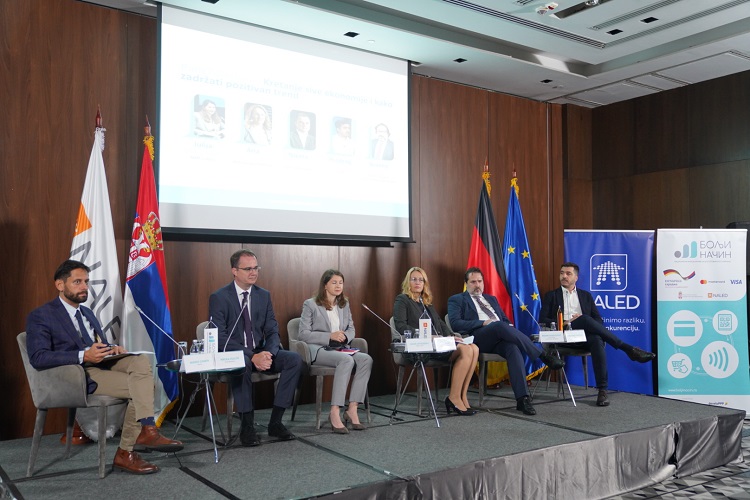Availability of workforce and inflation are the biggest challenges for businesses in 2024.
Improving public finances, combating the grey economy, and creating better conditions for entrepreneurs and innovation should be at the top of the priority list for relevant institutions in 2024 to facilitate business in Serbia, as shown by a survey of NALED members from the private, public, and civil sectors. Representatives from all three sectors see the greatest challenges for the economy in the coming period as being the availability of labor and rising prices.
The civil and public sectors are slightly more concerned about the rise in tensions and new conflicts in Europe and the world, while business owners themselves highlight the challenge of high tax and contribution burdens on wages.
"The business sector once again nominates the grey economy as a priority task for public administration to work on in 2024. Therefore, it is important for the new government to be formed as soon as possible to continue implementing measures from the Program for Combating the Grey Economy, such as reforming non-tax levies, expediting VAT refunds, regulating flexible forms of employment, strengthening inspection capacities, and promoting cashless payments," says Dragan Penezić, President of the NALED Assembly and Director of Regulatory Affairs at BAT.
Our interviewee also notes that the survey results showed that 65% of respondents from the business sector were satisfied with their cooperation with institutions in the previous year. Examples of best practices include the Ministry of Finance, the Ministry of Information and Telecommunications, and the Tax Administration.
"As key sectors in the future government, entrepreneurs see the economy, finance, and the environment, while the civil sector, along with the economy, prioritizes education, youth, mining, and energy," Penezić emphasizes.
Sixty-four percent of respondents gave a positive assessment of the business environment in 2023, while 36% were not satisfied with the environment. In the private sector, 72% of respondents gave a positive assessment, 81% in the public sector, while in the civil sector, this percentage was the lowest at 41%.
Regarding expectations for 2024, in the private sector, one in five respondents (20%) expects an improvement in business conditions, with the majority believing that there will be no changes. In civil society organizations (CSOs), only 10% expect improvement, while the public sector is the most optimistic - 57% believe that the business environment will be improved.
Although they see inflation as a challenge, 52% of respondents expect it to slow down in 2024, while 32% believe it will remain at the same level as the previous year. More than half of the respondents expect an increase in the number of employees.
The majority of respondents from all three sectors expect revenue growth in 2024, as well as more investments from both businesses and government institutions. Specifically, over 90% of business owners and even 70% of CSO respondents believe their revenues will increase this year. Regarding business investments, more than half of the company and public sector representatives and 30% of civil society expect an increase. Moreover, 43% of businesses expect to increase investments in innovation. According to the survey results, the median value of investments by surveyed NALED member companies in 2023 was one million euros.
Furthermore, 53% of local governments participating in the survey stated that they plan to implement some form of support measures for the economy, mainly subsidies or incentives to increase employment. The average budget for surveyed municipalities for the economy in 2024 is around 264 million dinars, or 2.2 million euros.
The survey of members, conducted by NALED in January 2024 to predict business trends and determine priorities for the year, involved 103 out of 350 organizations within NALED membership. The sample adequately represents the association's structure: 47% from the business sector, 43% from the public sector (mostly local governments), and 10% from civil society organizations.





